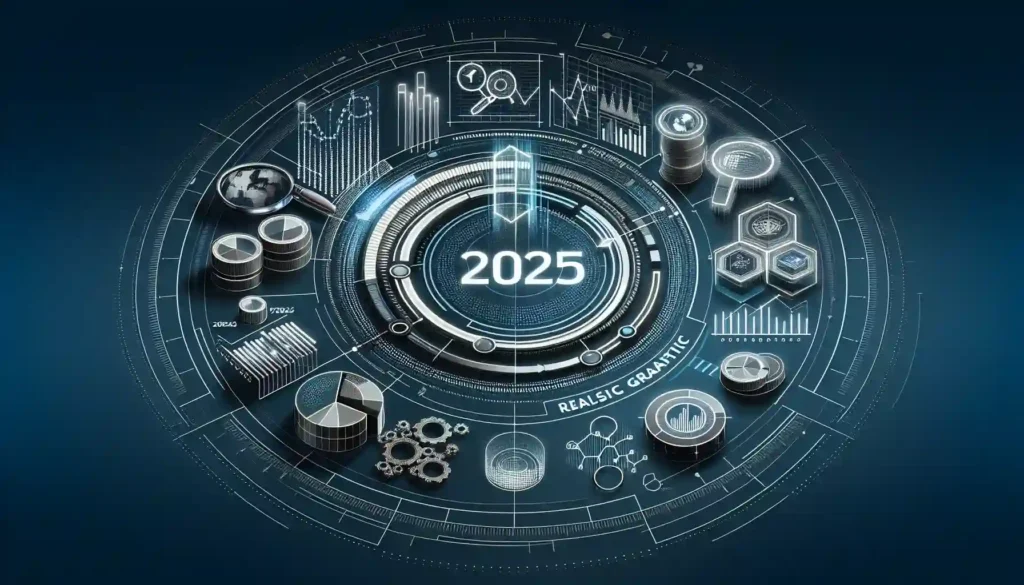
Market Research Trends Transforming Insights by 2025

The landscape of market research trends is continually evolving, notably due to the rise of technology and innovative methodologies. By 2025, these trends are anticipated to significantly transform the way insights are gathered and interpreted, altering the role of researchers from simple data collectors to strategic partners. As organizations embrace advanced technologies, particularly artificial intelligence (AI), they are paving the way for more efficient research processes, aiding their ability to predict consumer behavior and identify market trends with unparalleled precision.
In this ever-shifting environment, understanding the emerging market research trends is crucial for professionals striving to remain competitive. From incorporating AI to harnessing synthetic data and automating tasks, research teams are presented with myriad opportunities to enhance both their methodologies and outputs. However, as these innovations take root, they also pose challenges that need to be navigated thoughtfully, ensuring that human connection is preserved amid advancing digital strategies.
Table of Contents
-
Exploring the Future of Market Research: Trends Driving Insights by 2025
- The Role of Artificial Intelligence in Market Research Evolution
- Transforming Data Providers into Strategic Partners
- Budget Increases for Innovative Research Teams: A 2025 Forecast
- The Impact of Synthetic Data on Privacy and Insight Quality
- Automating Routine Tasks: The Permanent Shift Towards AI Tools
- Balancing Human Connection with Digital Methodologies in Research
- Rapid Insight Delivery: Maintaining Quality Amidst Speed
- Embracing Technology: Key Strategies for Researchers in 2025
- Navigating the Changing Market Landscape: Staying Ahead of Trends
- The Importance of Core Research Priorities Amidst Technological Advances
Exploring the Future of Market Research: Trends Driving Insights by 2025
As we look towards 2025, several pivotal market research trends are shaping the future of insights within organizations. The most significant changes include a deeper integration of AI, an evolving relationship between data providers and end-users, and an increasing emphasis on innovative approaches to research. Each trend carries implications that research teams must acknowledge and act upon to remain relevant and competitive.
The Role of Artificial Intelligence in Market Research Evolution
Artificial Intelligence is at the forefront of market research trends, fundamentally changing how data is analyzed and interpreted. AI technologies empower researchers to not only collect vast amounts of data but also to analyze and derive actionable insights with speed and accuracy. This operational shift allows teams to uncover patterns that may remain concealed in traditional research methods and enables predictive analytics that can forecast future trends.
- Data Processing: AI tools can process complex datasets significantly faster than human analysts, increasing the efficiency of research operations.
- Trend Prediction: Machine learning algorithms utilize historical data to project future trends, providing organizations with strategic foresight.
- Personalization: AI algorithms can tailor research approaches based on demographic and behavioral data, enhancing customer engagement and satisfaction.
Transforming Data Providers into Strategic Partners
Once viewed as mere suppliers of data, today’s research entities are evolving into strategic partners for businesses. This transformation is marked by a shift in expectations, where organizations expect insights that inform decision-making rather than just raw data sets. As market research trends continue to evolve, this partnership approach fosters collaborative relationships where data providers are actively involved in shaping strategic directions.
- Engagement with stakeholders is paramount to understanding their needs.
- Research teams are increasingly expected to provide actionable recommendations.
- Long-term relationships are forged through consistent, value-added insights.
Budget Increases for Innovative Research Teams: A 2025 Forecast
As the importance of sophisticated insights grows, organizations are beginning to allocate larger budgets towards innovative research teams. This financial investment is necessary for researchers to access advanced tools and technologies, recruit talent, and implement refined methodologies that align with current and future market research trends. Anticipated budget increases signal a commitment to enhancing research capabilities and driving innovation.
Funding will focus on:
- Investing in AI technologies for data analysis.
- Enhancing training and development for research professionals.
- Experimenting with alternative data sources.
The Impact of Synthetic Data on Privacy and Insight Quality
Privacy concerns remain a prevalent issue in data collection, proving to be a significant barrier to gathering quality insights. To address these challenges, the use of synthetic data is emerging as a key trend. Synthetic data, which is generated based on real datasets without containing sensitive personal information, allows researchers to perform effective analyses while adhering to privacy regulations.
- Compliance: Synthetic data assists organizations in meeting GDPR and CCPA requirements.
- Quality Insights: Researchers can generate vast datasets to test hypotheses without compromising real user data.
- Innovation: The availability of synthetic datasets encourages experimental research practices.
Automating Routine Tasks: The Permanent Shift Towards AI Tools
Automation through AI tools is set to redefine how routine research tasks are executed. By automating repetitive processes such as data entry, survey distribution, and initial analysis, research teams can focus on strategic insights and creative problem-solving. This permanent shift towards AI tools not only improves efficiency but also enhances the quality of insights gathered since human analysts are less burdened by mundane tasks.
Balancing Human Connection with Digital Methodologies in Research
While technology plays a vital role in shaping market research trends, it is essential to recognize the importance of human connection. Effective market research requires empathy, understanding, and intuition—qualities that AI cannot replicate. As researchers integrate more digital methodologies into their processes, a balanced approach that values human insight alongside technological advancements will be critical.
- Maintaining a human touch in qualitative research through interviews and focus groups.
- Leveraging AI for quantitative analysis while validating findings with human expertise.
- Creating an empathetic engagement model for connecting with audiences.
Rapid Insight Delivery: Maintaining Quality Amidst Speed
The demand for rapid insights is increasing as businesses operate in fast-paced environments. The challenge lies in delivering high-quality insights without compromising on speed. Research teams must develop streamlined processes and leverage technology to expedite data collection and analysis while ensuring accuracy and relevance.
- Implementation of agile research methodologies for faster turnaround times.
- Utilization of AI-driven analytics to uncover trends promptly.
- Streamlining collaboration between teams to share insights quickly.
Embracing Technology: Key Strategies for Researchers in 2025
To capitalize on the advancements in market research trends, researchers must be prepared to embrace innovative technologies. The approach includes leveraging big data, AI, and advanced analytics to increase the accuracy and timeliness of research outputs. Additionally, ongoing education and adaptability will empower research professionals to navigate emerging tools and methodologies effectively.
Crucial strategies include:
- Investing in continuous upskilling and training to stay abreast of technological advancements.
- Developing partnerships with tech companies to access the latest tools.
- Practicing agile methodologies to improve flexibility and responsiveness.
As market research trends evolve, researchers must stay vigilant and responsive to shifts in the market landscape. This requires a proactive approach to research strategies, anticipating future customer needs, and understanding competitive dynamics. By consistently monitoring emerging trends and competitor activities, research teams can provide valuable strategic input to their organizations.
- Engaging in trend analysis and competitive pricing strategies.
- Conducting ongoing consumer behavior studies to adapt to changing preferences.
- Emphasizing the importance of brand loyalty in evolving markets.
The Importance of Core Research Priorities Amidst Technological Advances
Despite the influx of technologies and methodologies reshaping market research trends, core research priorities must remain intact. Researchers must identify and concentrate on fundamental objectives: understanding customer needs, enhancing product offerings, and driving operational performance. By aligning technological advancements with these core priorities, research teams can enhance their impact.
- Clearly defining research objectives and outcomes to guide technology integration.
- Ensuring that advancements support rather than overshadow user engagement and experience.
- Measuring success by the ability to provide actionable, data-driven insights.
To conclude about - market research trends
The market research trends anticipated by 2025 promise a transformation that emphasizes the importance of advanced technologies while still valuing the human touch. As researchers navigate these changes, they will be tasked with utilizing AI and automation while maintaining strong relationships with stakeholders. Those who can balance innovative methodologies with core research priorities will stand out in an increasingly competitive landscape, paving their way toward impactful insights that drive business growth and adaptability in the market.
If you want to know other articles similar to Market Research Trends Transforming Insights by 2025 and can visit the categoryMarketing.
Go up






Leave a Reply